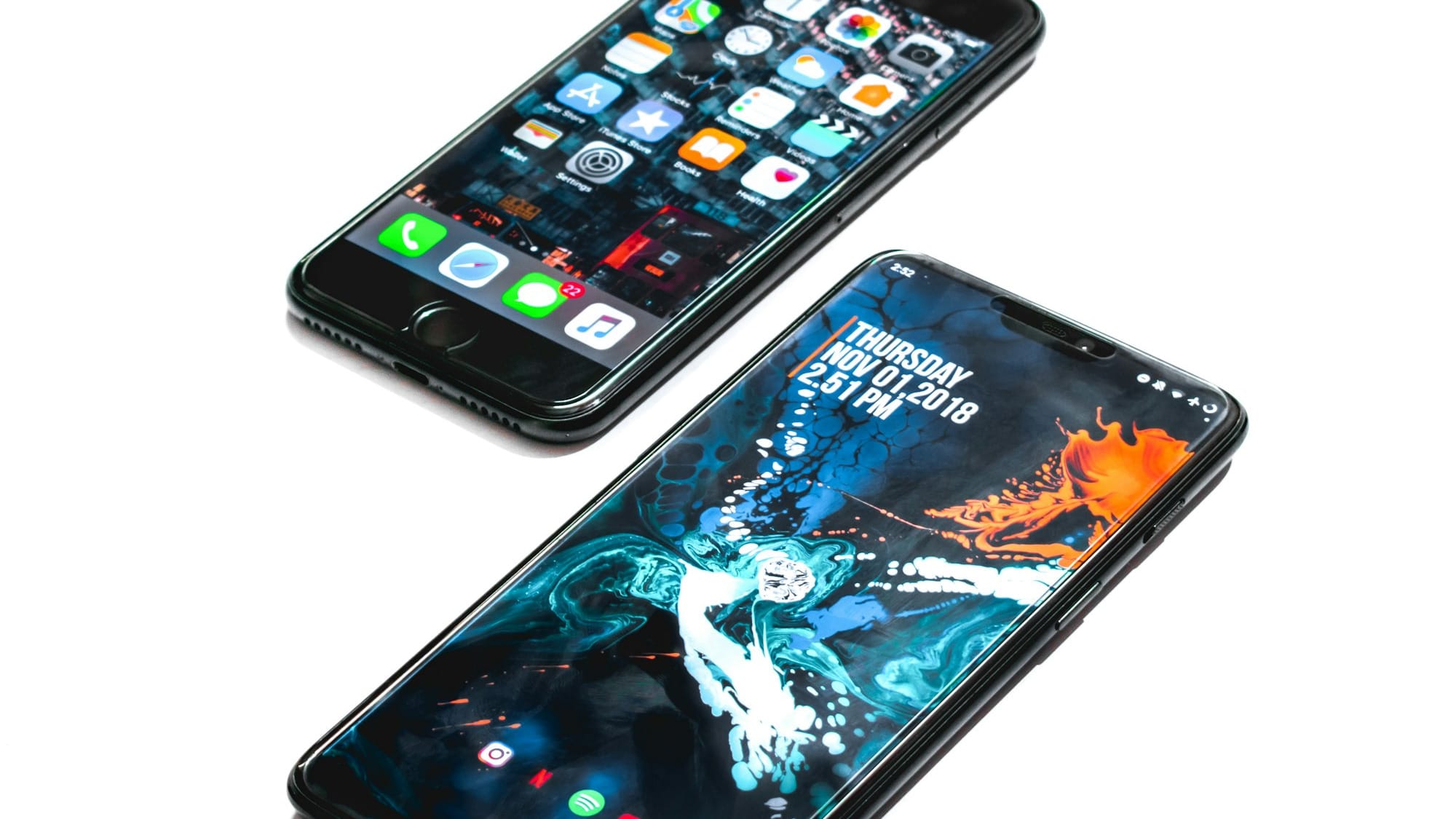This malicious app exposes the differences between Android and iOS
Android has a malware problem, Apple is anti-competitive — is there a right side in the Android vs. iPhone debate?

In December 2020, the popular Android app, Barcode Scanner, was updated to include malicious code. This led to thousands of users unknowingly installing malware onto their smartphones. The app sent spam notifications and opened popups for suspicious and low-quality ads. An investigation has shown that the developer intentionally inserted this code, although their motivations are unknown.
This highlighted a significant difference between the two smartphone platforms. Android is well-loved for its openness. Much of the software is based on open-source projects, and you can easily customise the operating system, install apps from other sources, and change defaults and other settings. Conversely, Apple's iOS platform is closed. You can only install apps that pass the company's approval process. The walled-garden approach is used to maintain a near-monopoly on the platform.
However, the openness of Android and Google's lack of oversight allows flaws like this to affect millions of users worldwide. It's quite likely that Apple's review process would have prevented malicious code from reaching a user's device. Similarly, Apple releases most standard utilities as part of iOS, rendering third-party apps primarily unnecessary. Developers are also encouraged to sell premium apps and subscriptions in place of Android's mostly ad-supported model.
Android has a well-known fragmentation problem, leaving many devices languished on year's old, insecure Android versions. It is also common for most iPhone users to update to the latest iteration of iOS within a few weeks or months of its release. Google has modestly started to address this in recent years, but the primary business model for Android is still advertising. Google gathers data on your digital interactions and location information and bundles that together for advertisers.
Understandably, people have begun to treat Google with suspicion, not least of all, because Google's various subsidiaries seem to be increasingly involved in our daily lives. For instance, the company's artificial intelligence firm, DeepMind, used to hold a range of NHS contracts. These were controversial as confidential patient data was shared with Google. After some resistance to this arrangement, the contracts were cancelled.
Except, Google created a new business called Google Health which took over the health contracts and included itself in a broader range of healthcare services. Apple has carefully positioned itself as the anti-Google. If Google is about data collection, Apple is pro-privacy. Google adds an invasive feature to Chrome; Apple cements Safari as free from trackers.
On the one hand, this is good as it provides an alternative. But, Google offers its platform and services for free (at point of use, your data is payment). To use Apple devices and services, you need to own the company's expensive hardware. As Apple controls the hardware and software, it's rarely interoperable with other platforms. The tech company also restricts where and how you can repair your devices. In the past, they have been key abusers of planned obsolesce to needlessly and prematurely render hardware unusable.
In internet years, the 90s were a very long time ago. But, back then, Microsoft came under intense scrutiny for its anti-competitive practices, like forcing Internet Explorer onto users and making it harder to install alternative browsers. Apple now finds itself under similar pressures to explain its anti-consumer approach to the App Store. By routing all software through the store, Apple also grants itself around 30 percent of all revenue derived through subscriptions and purchases in other apps.
In the end, neither platform is ideal. Google's Android is prevalent because it is (almost) free to install on any smartphone. You can adapt it to your needs, install any software you'd like, and the ad-supported platform means that there are few financial barriers. Generally, Android smartphones are also more affordable, offering a more comprehensive range of devices. On the other hand, Apple can afford to be pro-privacy as it makes high margins on apps, hardware, and subscriptions.
Ultimately, the smartphone industry is a duopoly, where you only have two options. Neither side has to innovate as they've already carved out their niche. Yes, some Android users defect to iPhones, but the reverse is also true. However, these users account for only a tiny percentage. Both businesses benefit from the pro-Google/anti-Apple and anti-Google/pro-Apple arguments that are common online as they force people to choose a side, invest in an ecosystem, and become resistant to change.
One thing you can do to better protect yourself though, is to use a secure password manager. These encrypt your passwords, so you don't have to write down long logins or choose easy to remember, but quick to guess, passwords.

